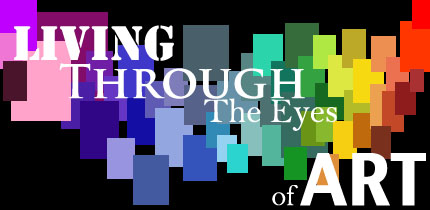by Hamda Al Hashemi (@Hamda_AlHashemi)

Albert Camus once said, “A guilty conscience needs to confess. A work of art is a confession.” Whether it was intentional or not, every artist has something to say in their artwork. Every curve, line, color, shadow, and shape tells a story. These artistic aspects are parallel to everything we face in life; the way we interpret a hand gesture, a tone of voice, or someone’s glare. Basically, everything in an art piece is a method of communication that sends a message. The question is, do we listen?
Let’s take Pablo Picasso as an example; he was the most influential artist of the 20th century. Before understanding concepts of art and design I referred to his work as “ugly”. But I now realize my ignorance. Picasso was a man with a troubled soul and hidden pain. And his way of letting out his frustration was through a brush and some paint.
When he was fourteen, he began to learn the basics of art, which he mastered. Unlike everyone in his time, art was his feelings; painting in black was his way of screaming, painting in red and yellow was his way of saying he’s in love. At the age of sixteen, Picasso rebelled through his art; he used methods that didn’t follow the rules of art. He came up with techniques that weren’t acknowledged at that time. As a result, his father told him to be “normal”. But according to Picasso, no one was normal.
In a few sentences he summarized a lifelong lesson:
“Everyone wants to understand art. Why don’t we try to understand the song of a bird? Why do we love the night, the flowers, everything around us, without trying to understand them? But in the case of a painting, people think they have to understand. If only they would realize above all that an artist works of necessity, that he himself is only an insignificant part of the world, and that no more importance should be attached to him than to plenty of other things which please us in the world though we can’t explain them; people who try to explain pictures are usually barking up the wrong tree.”
People cry, laugh, smile, dance, and frown. But not Picasso, Picasso paints. And nobody can do anything about it.
When I am nervous I bite my nails. When I am sad I barely talk. All of these actions are interpretations of what I am experiencing emotionally. But not everybody knows that. Except for those who listen; they listen to my body language.
When I saw Picasso’s painting Guernica, I listened and I heard pain, suffering, death, and love. I listened to a mother crying over her child, I listened to the cries of dying men, and I listened to the weeps of widows. When Picasso saw what was happening he had to let it all out so he went to his supplies and he picked up the paint and started to draw, what he felt, what he listened to! He had to tell the world or else he would have blown up from the inside. He drew sharp lines, disfigured forms, and communicated everything he felt. He would not have cared if anyone asked him why there were random body parts all over the painting because no one would get it.
“Are we to paint what is on the face, what is inside the face, or what is behind it? “ (Picasso). By looking at the world of Pablo Picasso, I learned a lesson. I should not take everything very seriously to understand what is going on. All I need to do is to pay better attention, open my mind, and let my imagination run wild. I need to listen to life when it speaks to me. Understanding the world will help us reach our goals and live a healthy life; socially interactive, and psychologically pleasing. I am not a philosopher but the simplest thing can be the most important thing. No one controls the way I think just like no one can control the way Picasso draws; I do not have to be shy to say what I have, I can just say it, whether it is through my drawings or what I write.
Here We Start – Interview – Scenes from Life
Just Another Undergrad – Living Through The Eyes of Art – Spotlights



It is quite intereseting to learn about the way we should view art as an emotional splash accross a canvas. Thank you for the amazing article and I'm personally looking forward to your newest work.
Oh and just one more thing, i would like to tell you that there is a grammar mistake in this part:
"no one can control the way picaso draw"
it is draws ^^
I agree with you Moe, Mashalla she has a great way of explaining the sense of art. Thanks for the typo alert 🙂
Understand " is a Key word here to see the beauty of this life … Great article … Well done
Thank you Badreya, and well said =)